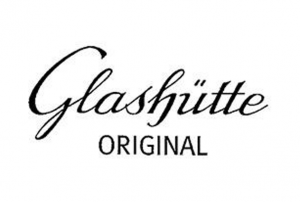In July 2021, an EU trade mark application was filed for the figurative sign ‘Glashütte Original’ covering goods and services in classes 9, 35 and 41, regarding virtual watches. However, the application was rejected, on the basis of Article 7(1)(b) of Regulation 2017/1001. The examiner, and subsequently the EUIPO’s Board of Appeal, considered that the mark applied for was devoid of any distinctive character, as it would evoke, in a significant part of German consumers, the reputation of the town of Glashütte regarding the excellence in the horological sector.

The applicant appealed against the decision of the Board of Appeal of EUIPO on the ground that the mark applied for had distinctive character. First, it argued that the reputation of the town of Glashütte in the manufacture of watches is limited to the interested public in Germany. Furthermore, that reputation does not mean that the city is renowned for the quality of its goods, but merely indicates that it constitutes a small proportion of the German horological industry. On the contrary, EUIPO contests that the town of Glashütte is well known for the manufacture of high-quality watches, as several large names of companies in the luxury watch industry are located in this town.
Furthermore, the applicant complains that said reputation merely relates to traditional watches and does not concern the reputation of virtual watches, since there is no evidence to associate that town with goods and services in the virtual field. According to the applicant, the EUIPO cannot transfer the reputation of the former to the latter on the basis of unfounded assumptions.
In this sense, the EUIPO considers that the sign applied for indicates to the consumer a characteristic of the products and services that comes from promotional or advertising information, as the name of the city will inevitably evoke in consumers the reputation for high quality watches. Furthermore, the concurrence of the word ‘original’ also conveys an idea of authenticity and loyalty. Furthermore, the EUIPO considers that the public will perceive the virtual goods and services in the same way as they perceive the real ones, as they emulate the same functions. Therefore, the trademark applied for would be understood as a logical extension of the reputation of the town of Glashütte because it evokes a heritage of exceptional know-how and a reputation for excellence, conveying the same positive feelings for traditional and virtual watches.
The applicant also states that the characteristics of the figurative elements of the contested trademark have been disregarded, but the EUIPO considers that the figurative characteristics of the mark applied for are purely decorative, therefore they do not add any distinctive character to the trademark as a whole. Finally, the applicant points out that it is already the proprietor of an EU figurative trademark identical to the trademark applied for, registered for goods in Class 14, particularly for watches. However the Board of Appeal and the General Court agree that they are not bound by earlier decisions, therefore the latter argument is not valid.
The General Court dismissed the applicant’s appeal as it considered that EUIPO’s arguments were well founded. There was no error of assessment in finding that the trademark applied for was devoid of distinctive character, as it could not be perceived by the relevant public as an indication of the commercial origin of the goods and services, but rather consisted of promotional information about the quality and authenticity of the goods and services conveyed by the reference to the town of Glashütte and its reputation in the field of physical horological goods and services, which by logical extension, also includes virtual goods and services.
Judgment of the General Court (First Chamber) of 11 December 2024 in Case T-1163/23.


 Español
Español Deutsch
Deutsch